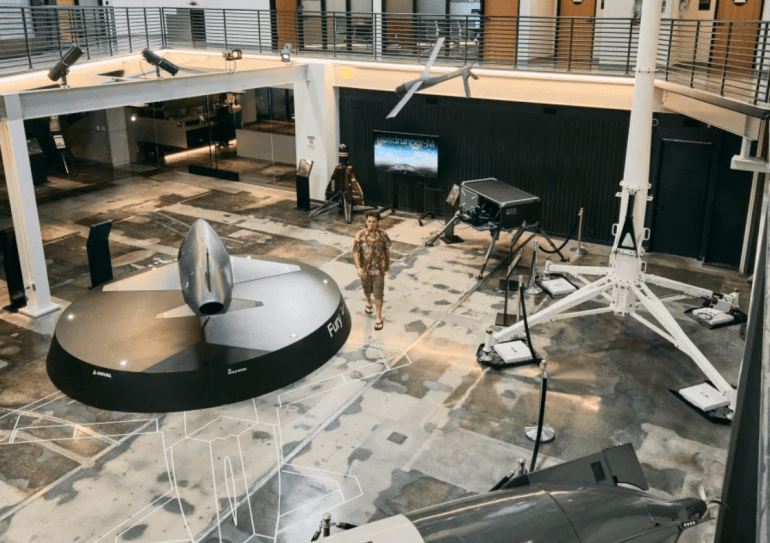- Palmer Luckey, founder of Anduril, known for casual attire and pioneering AI weapons.
- Sold Oculus to Facebook for $2 billion in his twenties, founded Anduril for AI drones and submarines.
- Anduril’s ALTIUS drone transforms mid-air, highlighting innovation in autonomous weapons.
- Challenges traditional defense contractors with agile, tech-driven approach.
- AI weapons deployed globally, including in Ukraine, transforming military strategies.
- Ongoing debate on ethical implications and operational effectiveness of AI weapons.
Main AI News:
Palmer Luckey is easily recognizable at Anduril, the artificial intelligence weapons company he founded just south of Los Angeles. Known for his casual attire of khaki shorts, flip flops, and vivid Hawaiian shirts featuring Dungeons and Dragons motifs, Luckey stands out as he gives tours of Anduril’s facilities. Having become a billionaire in his early twenties after selling Oculus to Facebook for $2 billion, Luckey now leads Anduril in developing advanced AI weapons like drones and submarines, which are now in demand by the Pentagon and deployed globally, including in Ukraine.
Anduril’s flagship ALTIUS drone, showcased in their showroom, exemplifies their innovative approach—a drone capable of launching from a tube, unfolding mid-air into a fully operational airplane capable of carrying up to a 30-pound warhead. This transformation underscores Anduril’s commitment to agile, autonomous weapon systems designed to meet modern military challenges with efficiency and precision.
As one of many tech companies pioneering AI weapons, Anduril aims to disrupt the defense industry dominated by traditional giants like Lockheed Martin and General Dynamics. Luckey’s vision for Anduril stems from his belief that existing defense contractors lack the agility and incentive to invest in cutting-edge technologies like AI and robotics. By leveraging his background in tech entrepreneurship, Luckey positions Anduril as a catalyst for transforming warfare, emphasizing reduced human risk and enhanced operational capabilities through advanced AI.
Critics and observers within the tech and military communities acknowledge the potential of AI weapons while cautioning about operational challenges and ethical considerations. The ongoing conflict in Ukraine serves as a testing ground for these new technologies, highlighting both their promise and current limitations. Scholars like Jacquelyn Schneider note the rapid pace of technological innovation amid evolving battlefield conditions, necessitating continuous adaptation and refinement of AI-driven weapon systems.
Looking ahead, Anduril and similar companies face significant regulatory and ethical questions regarding the use of autonomous weapons. Advocacy groups like Human Rights Watch call for international frameworks to govern the development and deployment of AI weapons, emphasizing accountability and ethical guidelines in military decision-making. Despite these challenges, Anduril remains committed to advancing AI technology in defense, aiming to redefine warfare in the twenty-first century with innovation and responsibility at its core.
Conclusion:
Palmer Luckey’s Anduril represents a disruptive force in the defense sector, challenging established players with agile, AI-driven technologies. By focusing on autonomy and advanced capabilities, Anduril seeks to reshape military operations globally, albeit amid ongoing ethical debates and operational challenges. The company’s innovations signal a shift towards more tech-intensive warfare solutions, influencing future market dynamics and regulatory landscapes.

